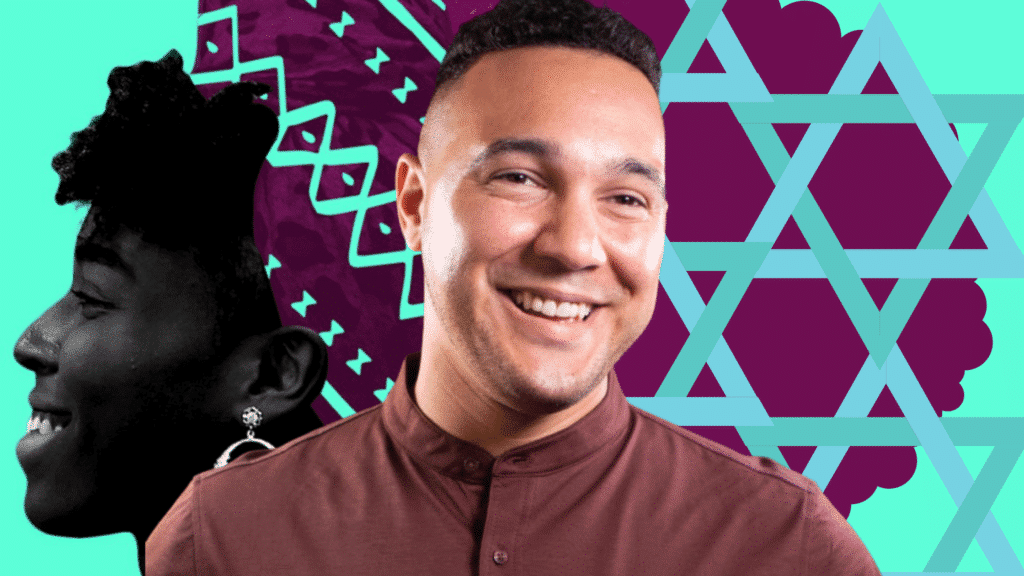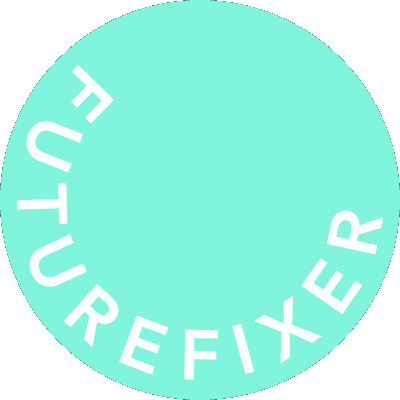 “The vision for Blavity is a world in which all Black people are happy.”
“The vision for Blavity is a world in which all Black people are happy.”
Aaron Samuels’ life is a tale of intersections: he is Black and Jewish, a published poet and nationally acclaimed performer as well as a Forbes 30 Under 30 rising star entrepreneur, and also a builder of community in both the real world and digital spaces. Strikingly, none of these sit in contradiction to each other, but each strengthens both who he is and what he creates.
And what he has created, with co-founders Morgan DeBaun, Jonathan Jackson and Jeff Nelson – friends from his days at Washington University in St Louis – is Blavity,Inc. the leading independent media group in the United States for Black millennials. Aaron is the Chief Operating Officer of platforms that reach 60-80 million users each month, in a leadership team boasting a majority of Black women.
What all the Blavity brands (see sidebar to the right) have in common is creating new narratives, helping people find their tribe and offering their communities support. Aaron Samuels believes in the power of words and stories, and the vital role of independent media: “If you can change the way that people see the world, you can transform it”.

Aaron waxes poetic about the power of narratives, digital spaces designed for celebration and maximising Black happiness

Meet the co-founder of America’s Black millennial newsroom | Photo: MINT
Everything we do is oriented toward maximising Black happiness in the world. That’s the goal: it’s very, very simple.
The poet in me always pulls towards the original intention. The poet says, okay, we’re still doing this, but maybe using different tools and a slightly different team, and maybe different things are possible.
As Black entrepreneurs, we are given a set of rules that is limiting. We’re born into a received narrative that says ‘this is what Black people are allowed to do; this is what Black business people are allowed to create’. But like the poet, the entrepreneur says thank you for the rules, now I’m going to break them. Those rules were not designed to serve me or my people, so let’s do something different.
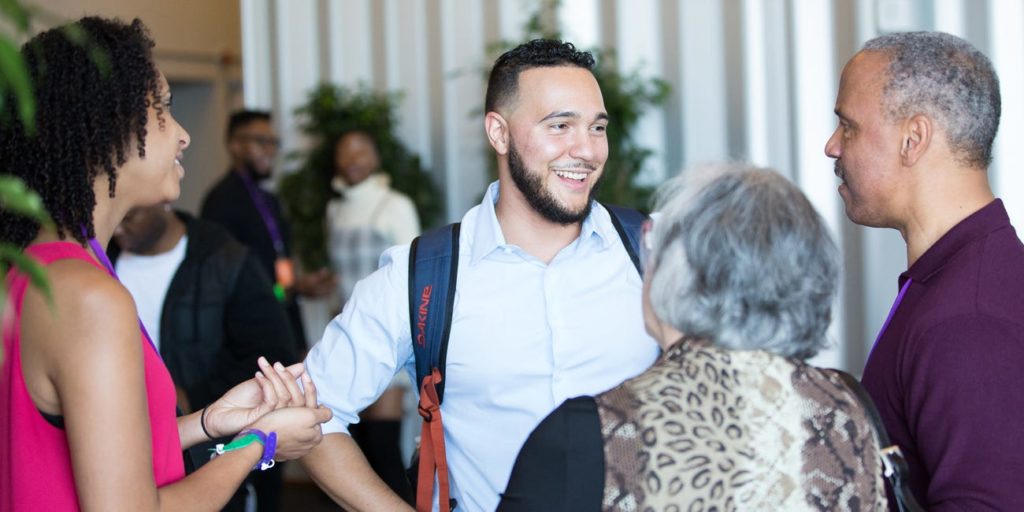
Aaron & his parents, AfroTech 2017
We are living in one of the most memorable moments in history. When all the people in your company are in the mindset of survival or support, how do you deal with that? We can’t just we can’t just do business as usual or be trapped behind a wall of corporate staleness.
With COVID-19, no matter how useful you thought you were yesterday, you’re going to need to be useful in a different way tomorrow. That’s true as individuals, but it’s especially important as organisations. How do you put that in the culture, so that you can tear up the annual plan and go a different way?
We have had to adapt to a one-two punch – of COVID and the national and international Black Lives Matter uprising in response to centuries of police brutality, encapsulated by three back-to-back, very visceral, terrible murders of Black people – followed by more.
We held open town halls where people brought art that was guiding them through the moment. We had people share poems, songs, prayer and visual art and talk about how it affected them. We created space to grieve collectively and to let the art of our community help propel us.
You need to accept the trauma of change, and even mourn the year that you thought you were going to have. But you also need to move into that and view it as a moment of opportunity. These were the rules, but they are different now. Can we still find a way to create spaces of love and intention for our community?
LISTEN ► Aaron in conversation with Professor Deb Donig, on Blavity’s origins, building community and poetry and entrepreneurship:
I don’t believe that utility and imagination are in opposition. Oftentimes they’re framed as such, but I think the opposite. I am most useful when I am most imaginative and I’m often most imaginative when I’m being most useful.
One of one of my favourite definitions of poetry was given by Patricia Smith. She said, “I consider a poem the moment when that narrative is stunned, when it can’t move forward without further comment”.
Where the poem happens is also what it means to respond to any type of critical event. We were living our lives in one way, and then something shocks the system and you cannot continue in the same way: you need to go tangential or orthogonal; you need to go inward or through or you need to explode, before you can figure out what’s next.
Writing poetry is a fun discipline, because poetry is about rule breaking. Poetry requires a deep understanding of the rules, but almost every poem subverts them. By design, you’re breaking a sentence in the middle, you’re not using punctuation, or you’re using a word, quite literally, in a different way than it was intended to be used to extract meaning and create something beautiful.
My role at Blavity was the first time in my career that I made an intentional decision to live in an integrated way and bring as much of myself as possible to my job. I really put my money where my mouth was.
My work as an artist is one of my superpowers in the business world – and vice versa. My logistic-oriented, strategic business trained mind helps me do things in artistic and literary spaces that I otherwise might not have been able to do.
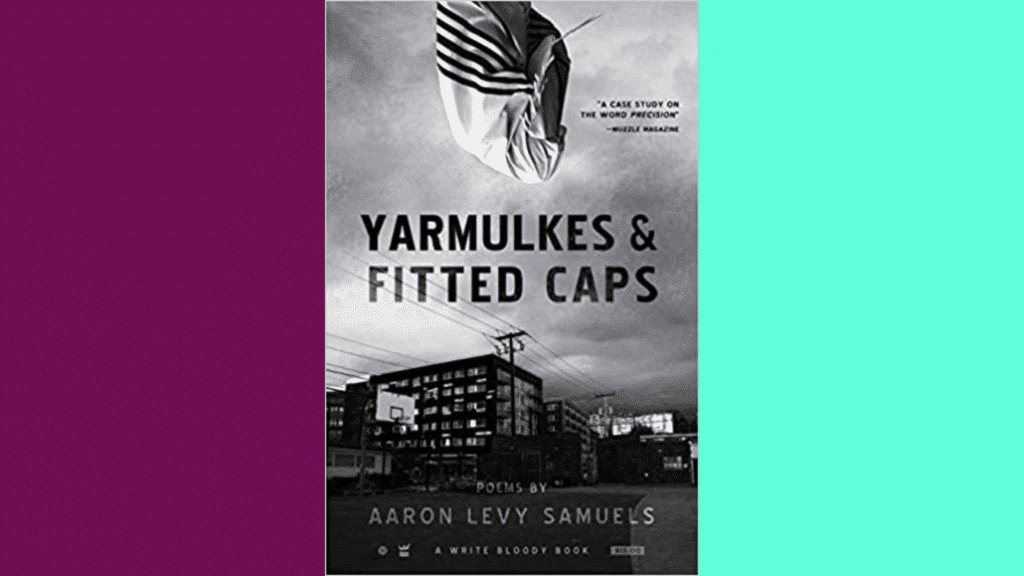
A gut-wrenching and ground-breaking collection of poems (2013)
As Black business operators our general assumption is that when something bad happens, it disproportionately affects the Black community. Even though we weren’t sure how long the COVID period was going to last, we moved fast in three main areas.
With our AfroTech conference we didn’t want to be responsible for creating an unsafe experience. So we made the call early to make something intentionally digitally native, instead of having to pivot at the last minute.
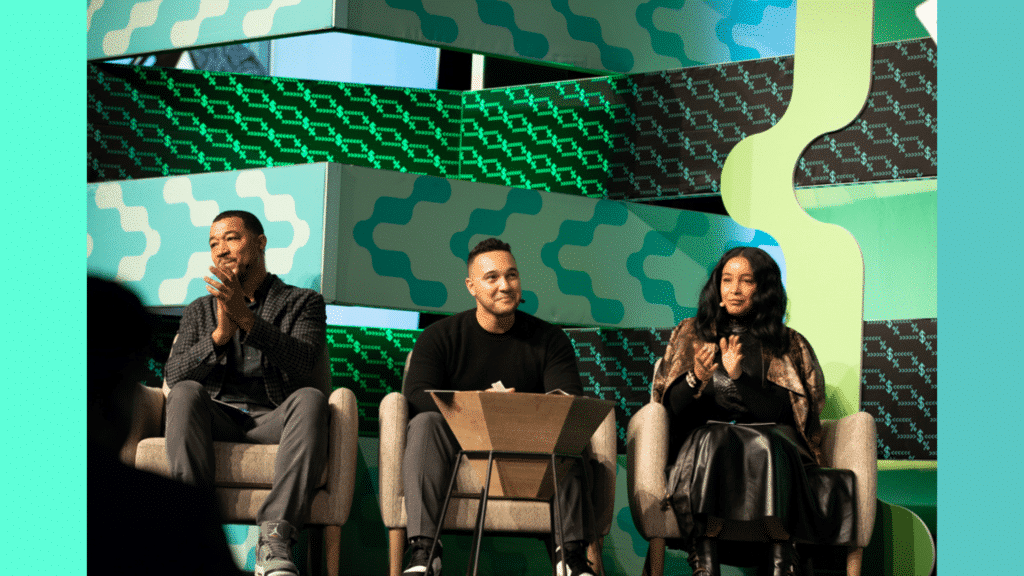
AfroTech Pitch competition Judges 2019
We also asked ourselves who this hits the hardest in our community? And who were we in a position to best affect in a positive way. For Black businesses, we launched the Black Growth Network to create a simple way to access the government, non-government and industry grant and support structures that can be very hard to find.
The third thing was to create Blavity.org to offer more resources to empower the next generation of Black digital storytellers: creatives, journalists, reporters and digital narrators. This will be officially launching in 2021.
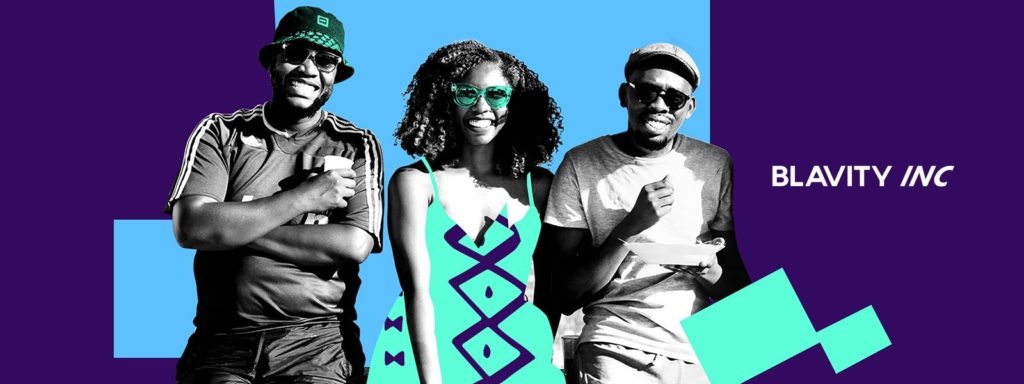
Blavity marketing materials
From the outset we said if we are going to give this to our community for free, then we’re going to charge businesses for access to that community. Advertising is here to stay, and millennials and Gen Z are used to it.
We spent two years making amazing content and only started charging when we were reaching one million people a month. Getting Fortune 100 companies to pay to advertise to this premium, amazing community of great content creators and readers is the core of Blavity’s business model.
Inside every person are infinite possibilities of who that person is. Our ability to modify ourselves when we go to different places reminds us of our infinitude. That possibility is how we empower our community through Travel Noire, an incredible platform created by the brilliant Zim Ugochukwu.
Our world views are informed by the people that we are proximate to. Travel changes the definition of what proximity can look like.
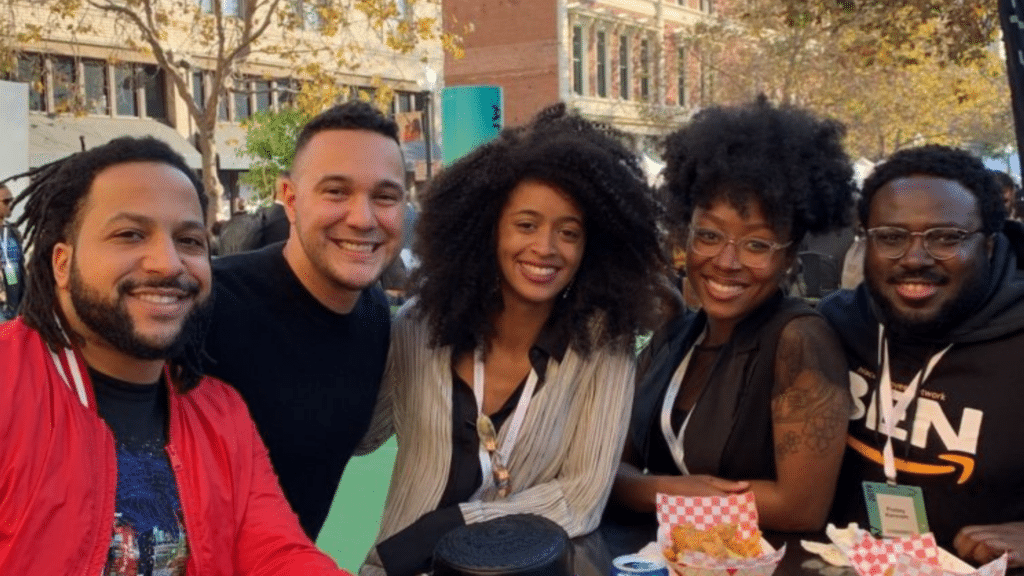
AfroTech 2019
If it looks like Black people are not in your community, my challenge is: is there something off about the way that you are drawing the circle around your community? If someone says there’s no Black entrepreneurs, maybe actually there are a lot, but you just didn’t let them in your club. So let’s talk about it differently.
AfroTech challenged and disproved the narrative that there are no Black people in Silicon Valley. It’s now one of the biggest Black tech conference in the world.
AfroTech 2020 had over 15,000 people and over 100 clients – and in order to attend, you had to go into a video game that we built. It was synced up with people’s microphones, so you’re in the video game having real conversations and visiting recruiting booths, houses, boats and conference sessions. People told us that it was one of the most engaging virtual conferences of the year.

Blavity Founding Team, first office opening, 2016
It is possible to design spaces for celebration, that are collaborative and not competitive: where people that get shown the most love are the ones that are showing the most love to others. It serves to drown out the voices of negativity.
The project of Blavity Inc. is to demonstrate the multiplicity of ways that Black people think about issues – for Black readers and non-Black readers.
It’s a problem when a community gets flattened. The people of the African diaspora are part of one of the most diverse racial categories in the world, and our job is to highlight that diversity. By virtue of seeing that, it starts a subtle mindset shift about how nuanced our community is – which is more important than changing minds about personal issues.
In poetry, we often talk about being born into a received narrative and how we are supposed to act in line with that narrative. But if the media can show different possible narratives for your path, then it’s not limiting, it’s expansive.
If I could have any FuturePower, it would be… the ability to transform any bland food item into being seasoned properly.
AtlasAction ► Learn more about Blavity,Inc. the leading independent media group in the United States for Black millennials. Aaron Samuels was in conversation with Cathy Runciman, co-founder of Atlas of the Future.
